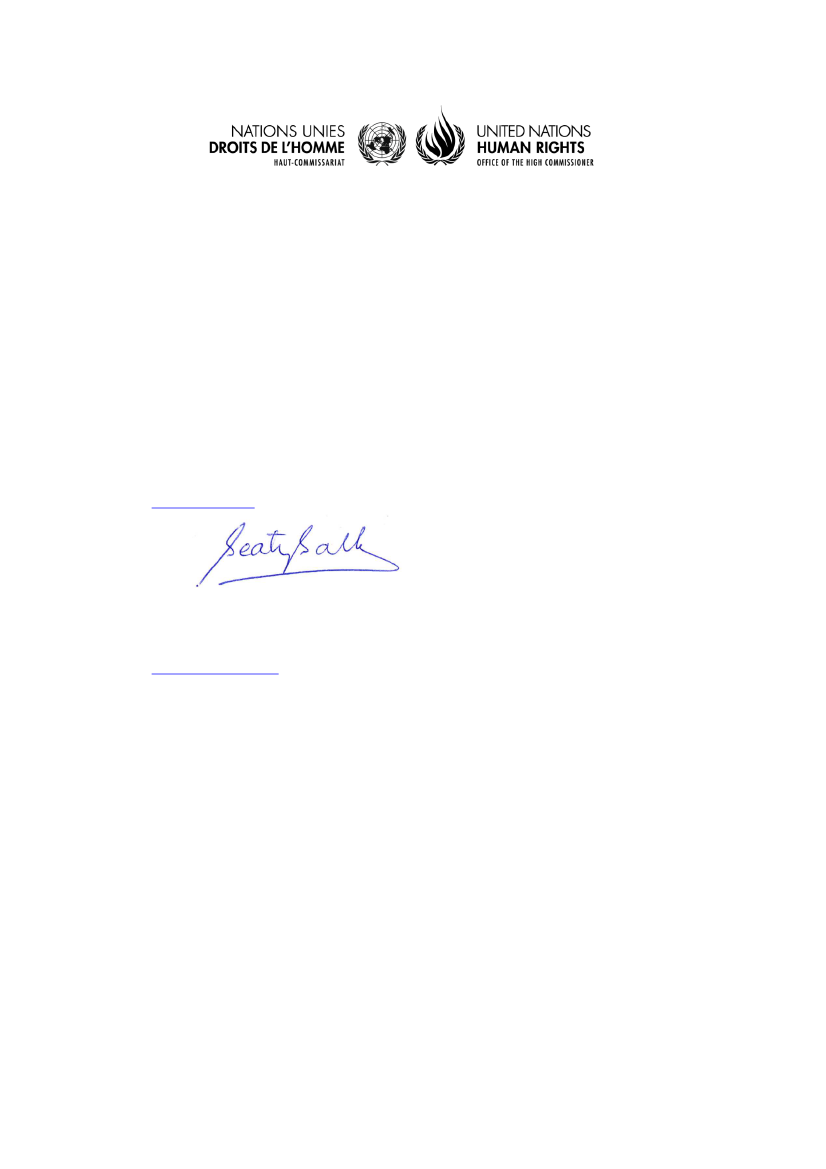
TÉLÉCOPIE FACSIMILE TRANSMISSION
DATE:
29 November 2019
His Excellency
Mr. Morten Jespersen
Ambassador
Permanent Representative
Permanent Mission of Denmark
to the United Nations Office and other international organizations in Geneva
+41 22 918 00 66
Beatriz Balbin
Chief
Special Procedures Branch
OHCHR
+41 22 917 9008
+41 22 917 9543 / +41 22 917 9738
AL DNK 3/2019
(Y COMPRIS CETTE PAGE/INCLUDING THIS PAGE)
11
COMMUNICATION FROM SPECIAL PROCEDURES
A/TO:
FAX:
EMAIL:
DE/FROM:
FAX:
TEL:
E-MAIL:
REF:
PAGES:
OBJET/SUBJECT:
Please find attached a communication sent by the Special Rapporteur on extrajudicial,
summary or arbitrary executions.
I would be grateful if this letter could be transmitted at your earliest convenience to
His Excellency Mr. Jeppe Kofod, Minister for Foreign Affairs.